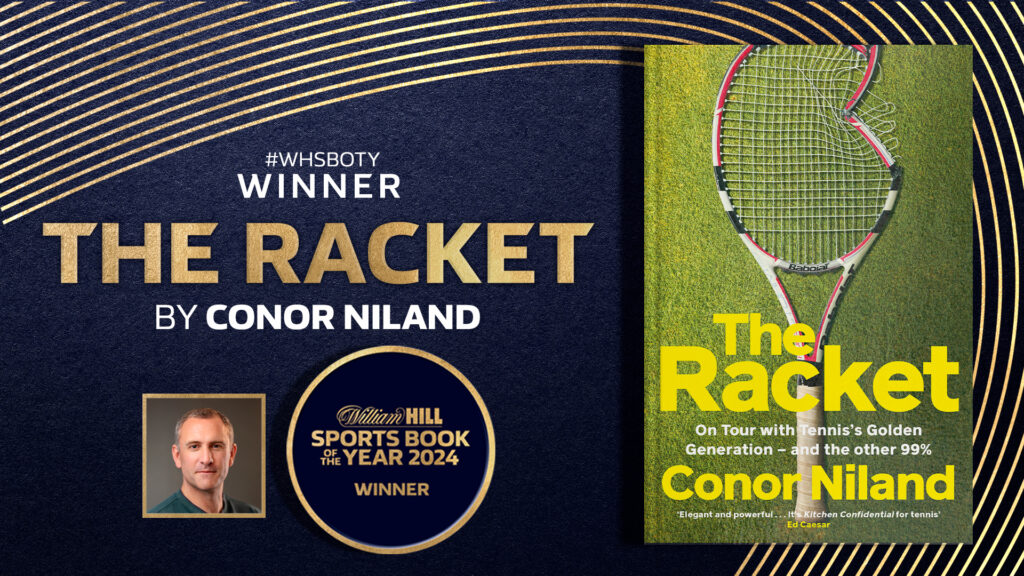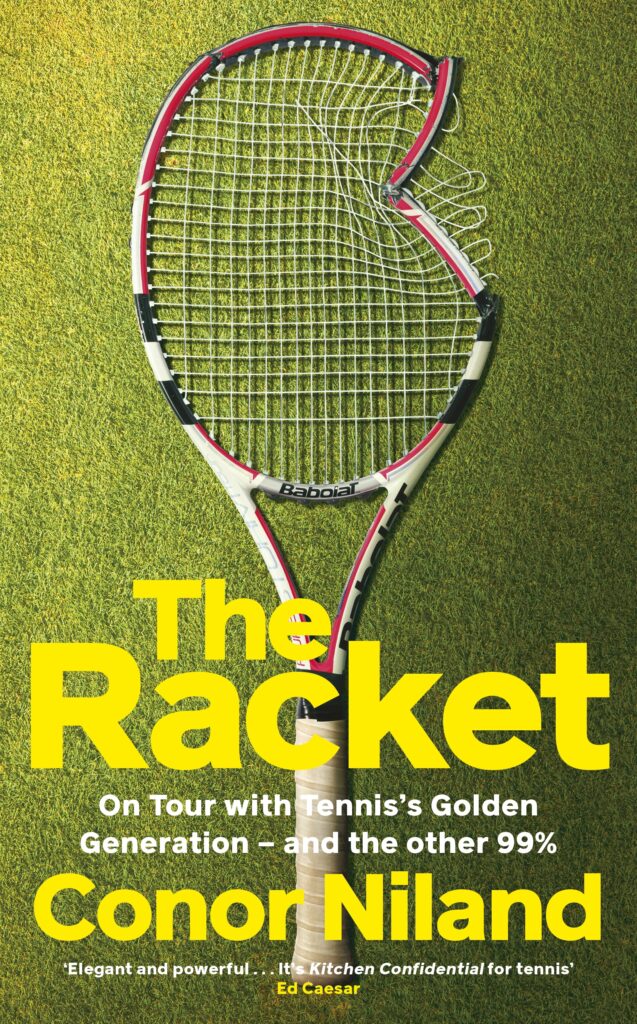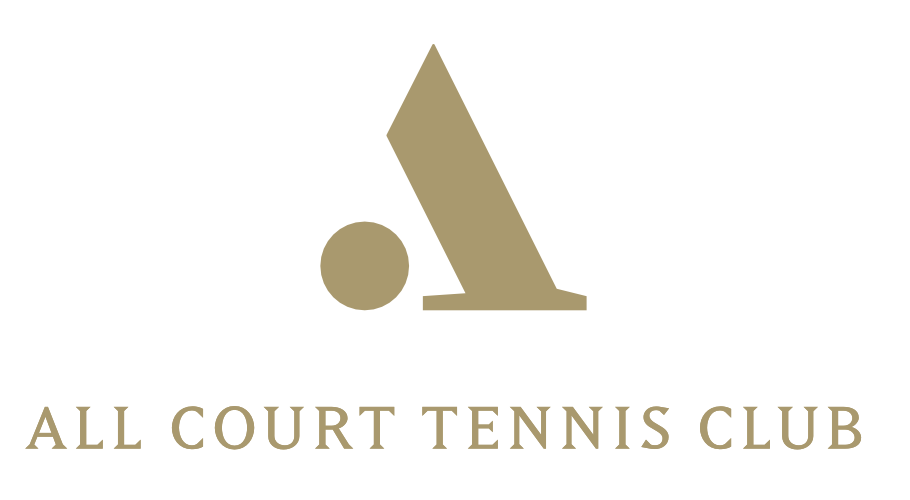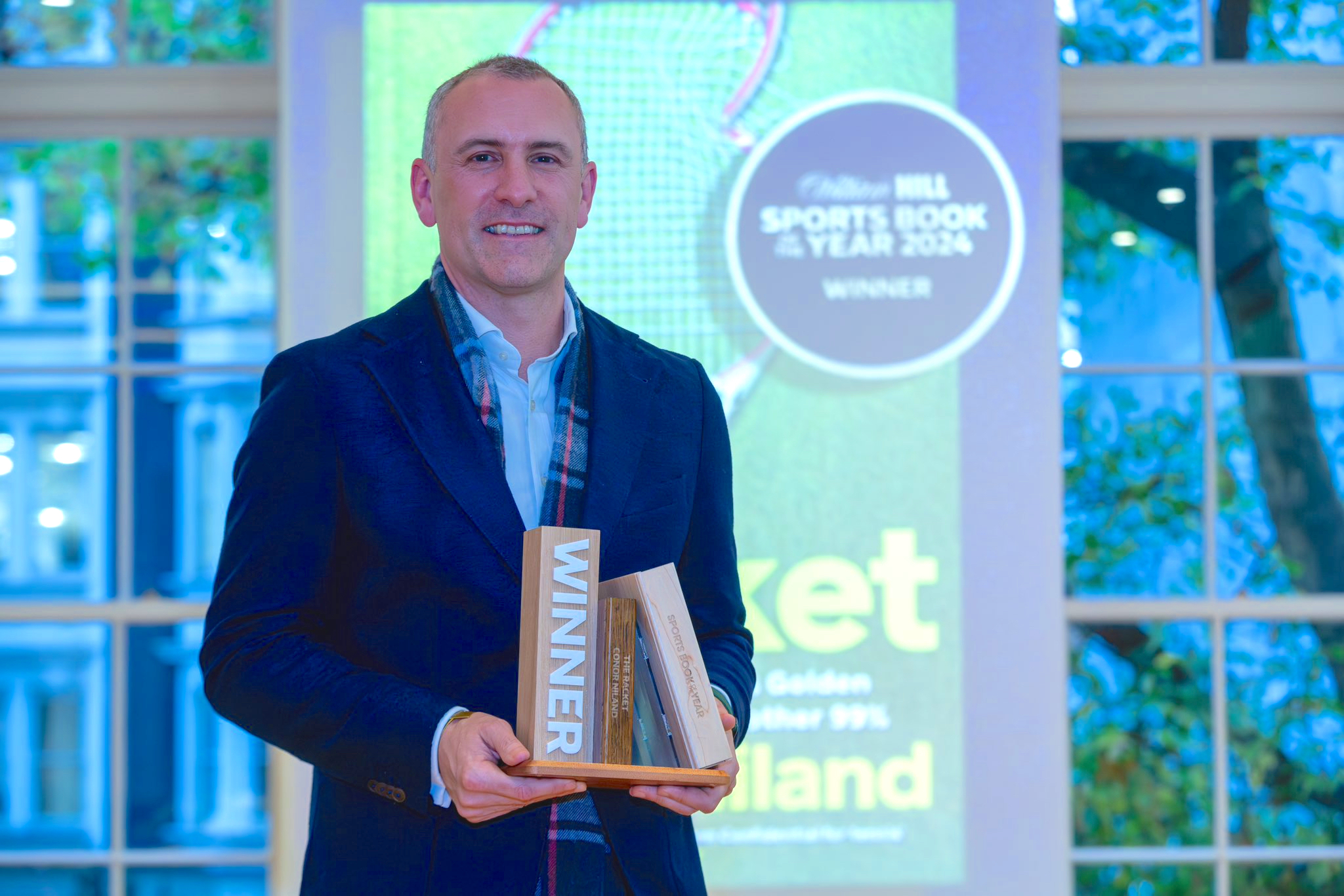Conor Niland’s tennis story may not have captured the headlines to compare to his one-time US Open opponent Novak Djokovic, but he has just won the biggest cash prize of his tennis career 12 years after he hung up his racket.
Irishman Niland was a few games away from sealing a second round clash against Roger Federer and Wimbledon in 2010 and took on Djokovic in the 2011 US Open, but his career didn’t reach the heights he was hoping for as a peaked at a career-high ranking of No.129.
Yet his story of battling against the odds against some of the game’s all-time legends proved to be a big hit as he released his book The Racket earlier this year, with his success confirmed as he collected the prestigious 2024 William Hill Sports Book of the Year award in London.
The award came with a £30,000 prize and the recognition Niland deserves for a brilliant book that chronicled his life at the less glamorous end of the tennis ladder.

Here, Conor tells us about his story and why he believes it captured the imagination of non-tennis fans in The Racket.
Congratulations on the William Hill Sports Book of the Year. Have you surprised yourself?
CN: I knew it was a good book and I knew it would be well-received by people who like tennis. What I didn’t know was whether people who didn’t follow our sport would get something out of it.
The pro tennis tour is a little bit of a misunderstood sport and hopefully we were able to show what the world is really like for the guys a little bit further down the rankings. As it turns out, a lot of the most enthusiastic comments have come from people who were brought into the tennis world through this book.
Those of us involved in tennis know it inside out and how it all works, but people who are involved in tennis get something out of that world being revealed to them.
Winning the William Hill Book of the Year award is just the icing on the cake of what has been an amazing year. My brother told me I would win this prize when he read the book last Christmas, but I took that with a pretty large pinch of salt. Well, he was right. It’s amazing.
Do you look back on your tennis career with regret or pride?
CN: How I describe my career is I don’t think I could have done a lot more and also, I don’t think I fulfilled my potential. In a different environment, I could have done a lot better, but it could also have gone a whole lot worse.
I think I have to take it in the round and if you told me when I was 14 or 15 I would play Grand Slams and I’d be No.129 in the world and I’m going to write a book about the whole experience, I probably would have taken it. So I’m pretty comfortable in what I’ve done, but you always think you could have done more.
Coming from Ireland, no one had really made it to the top of the game and that made it more difficult for me.
That may explain why it took so long for me to get my levels up to the top players and why I enjoyed success later in my career.

What can we do to get more prize money to lower ranked players in tennis?
CN: Prize money has gone up a little since I retired and Grand Slam qualifying prize money has certainly improved, but the guys that don’t make it into the main draws for the big events are still struggling to get the fan experience or the profile to make a successful living out of it.
Golf has regional tours that mean you can make a name for yourself and earn enough money even if you are not competing against guys on the PGA Tour, but we don’t really have that in tennis. You are either in the top 100 or you are struggling to break even.
There is very little difference between someone ranked 150 in the tennis world and 80, but your prize money falls off a cliff if you are at the bottom end of that range.
How frustrating was it to get so close to the top of the game, but not quite break the top 100?
CN: There is a hierarchy in tennis. You look at the practice court issue as the big players always get the advantage and the rest of us don’t.
You need Andre Agassi on the entry list for a tournament to sell the tickets. That’s the reality of how tennis works and we get a glimpse of the hierarchy issue when it comes to booking practice courts.
For example, I didn’t get to practice on Arthur Ashe until I played on it against Djokovic. I’d never been on that court before until I walked on to play.
So you are already at a disadvantage because your opponent is higher ranked and he is playing in a much more comfortable environment for him.
That’s one of the reasons why these guys breeze through the opening rounds at Grand Slams they are much more used to the environment than a lot of their lower ranked opponents.
To be one of the top 200 people in the world at anything is pretty good, but unfortunately, only 128 guys get to play the Grand Slams in tennis.

